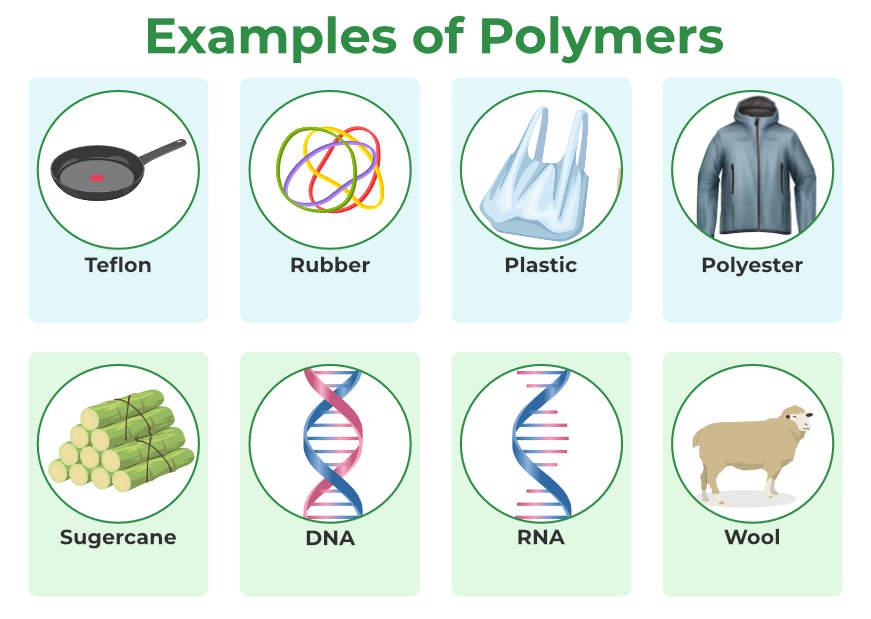Reusing Polymers: Promoting a Circular Economic Situation
Reusing Polymers: Promoting a Circular Economic Situation
Blog Article
Discovering the Varied Applications and Advantages of Polymers in Different Industries
Polymers, with their diverse array of residential properties and functionalities, have become vital in numerous industries, each reaping distinct benefits from their application. From boosting safety and security and performance in the automobile industry to changing medical devices in the medical care market, polymers play a pivotal duty.
Automotive Field Applications
Polymers play a crucial function in enhancing the efficiency and resilience of numerous elements within the automobile market. These flexible materials are thoroughly utilized in the production of different parts, varying from indoor elements to under-the-hood applications. One noticeable usage of polymers in the auto industry remains in the production of light-weight parts. By changing traditional steel components with polymer-based choices, automobiles can achieve improved fuel efficiency without compromising on strength or safety.

Healthcare Sector Benefits
In various healthcare applications, the benefits of utilizing polymers are extensively identified for their diverse variety of useful residential or commercial properties. Polymers play a vital duty in the health care market as a result of their convenience, biocompatibility, and cost-effectiveness. Among the primary benefits of polymers in medical care is their capacity to be customized to certain needs, such as flexibility, sturdiness, and biodegradability, making them excellent for a large range of clinical applications.
Polymer-based products are extensively used in clinical tools, such as catheters, implants, prosthetics, and drug shipment systems, because of their biocompatibility and capability to imitate all-natural tissues. These products can decrease the threat of allergies or beings rejected, improving client safety and security and results. In addition, polymers are lightweight, making them ideal for wearable medical devices and making certain patient comfort.
Additionally, polymers make it possible for the development of innovative therapy approaches, such as hydrogels for cells engineering and nanocomposites for targeted medication shipment. Their convenience of handling and sterilization makes them important for keeping high criteria of hygiene in healthcare settings. In general, the diverse benefits of polymers add significantly to advancements in clinical modern technology and person treatment.
Ecological Benefits of Polymers

Furthermore, polymers can add to energy financial savings because of their lightweight nature. In markets such as transportation, lightweight polymer products can help lower gas intake and greenhouse gas discharges. Furthermore, polymers can make it possible for the growth of energy-efficient items such as insulation materials that enhance energy conservation in buildings.
In addition, polymers play a vital role in lowering water air pollution. The use of polymer-based purification systems can properly eliminate toxins and contaminants from wastewater, guarding water sources and ecosystems. Overall, the ecological benefits of polymers make them important assets in promoting sustainability and green practices across different industries.
Polymers in Electronics and Modern Technology
Taking into consideration the boosting demand for innovative and sustainable remedies in modern-day markets, the integration of sophisticated polymer technologies in the world of electronic devices and Full Report technology has emerged as a pivotal technique for driving effectiveness and performance. Polymers have revolutionized the electronics sector by enabling the production of lighter, much more flexible, and long lasting digital devices. From smart devices to medical gadgets, polymers play an essential duty in enhancing product design and capability.
One substantial advantage of polymers in electronic devices is their insulating buildings, which help safeguard fragile electronic parts from environmental aspects and electric interference. In addition, polymers are necessary in the growth of versatile screens, wearable innovation, and published electronics, supplying endless possibilities for creating smart and interconnected devices.
In addition, making use of polymers in electronic packaging has actually brought about innovations in miniaturization and thermal management, improving the total performance and integrity of digital systems. As modern technology remains to develop, the flexibility and flexibility of polymers will unquestionably drive even more innovation in the electronic devices sector, shaping the future of technology.
Function of Polymers in Building and Infrastructure
Polymers provide numerous advantages in the building market due to their versatility, toughness, and cost-effectiveness. One crucial role of polymers in construction is their use in coatings and sealers, offering protection versus environmental factors such as dampness, UV radiation, and rust.
Furthermore, polymers play a vital role in lasting construction techniques by making it possible for the development of energy-efficient structures. Shielding products made from polymers assist control indoor temperatures, reducing the need for home heating and cooling systems and eventually decreasing power consumption - Polymers.
Conclusion
In final thought, polymers play a vital duty in numerous industries such as automobile, medical care, environmental, electronics, and construction. From boosting gas effectiveness in cars to boosting medical tools, polymers use many advantages.
Report this page